
The International Energy Agency (IEA) is a Paris-based autonomous intergovernmental organisation, established in 1974, that provides policy recommendations, analysis and data on the global energy sector. The 31 member countries and 13 association countries of the IEA represent 75% of global energy demand.

Renewable energy progress in the European Union (EU) is driven by the European Commission's 2023 revision of the Renewable Energy Directive, which raises the EU's binding renewable energy target for 2030 to at least 42.5%, up from the previous target of 32%. Effective since November 20, 2023, across all EU countries, this directive aligns with broader climate objectives, including reducing greenhouse gas emissions by at least 55% by 2030 and achieving climate neutrality by 2050. Additionally, the Energy 2020 strategy exceeded its goals, with the EU achieving a 22.1% share of renewable energy in 2020, surpassing the 20% target.
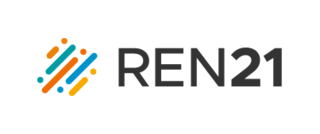
REN21 is a policy network and a multistakeholder governance group which is focused on renewable energy policy.

The Renewable Energy and Energy Efficiency Partnership (REEEP) is a Vienna-based Quasi-International Organisation that advances markets for renewable energy and energy efficiency with a particular emphasis on the emerging markets and developing countries.
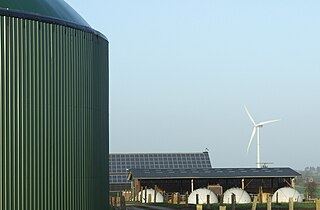
Renewable energy in Germany is mainly based on wind and biomass, plus solar and hydro. Germany had the world's largest photovoltaic installed capacity until 2014, and as of 2023 it has over 82 GW. It is also the world's third country by installed total wind power capacity, 64 GW in 2021 and second for offshore wind, with over 7 GW. Germany has been called "the world's first major renewable energy economy".

Renewable energy commercialization involves the deployment of three generations of renewable energy technologies dating back more than 100 years. First-generation technologies, which are already mature and economically competitive, include biomass, hydroelectricity, geothermal power and heat. Second-generation technologies are market-ready and are being deployed at the present time; they include solar heating, photovoltaics, wind power, solar thermal power stations, and modern forms of bioenergy. Third-generation technologies require continued R&D efforts in order to make large contributions on a global scale and include advanced biomass gasification, hot-dry-rock geothermal power, and ocean energy. In 2019, nearly 75% of new installed electricity generation capacity used renewable energy and the International Energy Agency (IEA) has predicted that by 2025, renewable capacity will meet 35% of global power generation.
Outlook on Renewable Energy in America is a comprehensive two-volume report, published in 2007 by the American Council on Renewable Energy (ACORE), about the future of renewable energy in the United States. It has been said that this report exposes a "new reality for renewable energy in America".

Solar power accounted for an estimated 10.7% electricity in Germany in 2022, up from 1.9% in 2010 and less than 0.1% in 2000.
A feed-in tariff is a policy mechanism designed to accelerate investment in renewable energy technologies by offering long-term contracts to renewable energy producers. This means promising renewable energy producers an above-market price and providing price certainty and long-term contracts that help finance renewable energy investments. Typically, FITs award different prices to different sources of renewable energy in order to encourage the development of one technology over another. For example, technologies such as wind power and solar PV are awarded a higher price per kWh than tidal power. FITs often include a "digression": a gradual decrease of the price or tariff in order to follow and encourage technological cost reductions.

China is the world's leader in electricity production from renewable energy sources, with over triple the generation of the second-ranking country, the United States. China's renewable energy sector is growing faster than its fossil fuels and nuclear power capacity, and is expected to contribute 43% of global renewable capacity growth. China's total renewable energy capacity exceeded 1,000 GW in 2021, accounting for 43.5 per cent of the country's total power generation capacity, 10.2 percentage points higher than in 2015. The country aims to have 80 per cent of its total energy mix come from non-fossil fuel sources by 2060, and achieve a combined 1,200 GW of solar and wind capacity by 2030. In 2023, it was reported that China was on track to reach 1,371 gigawatts of wind and solar by 2025, five years ahead of target due to new renewables installations breaking records. In 2024, it was reported that China would reach its target by the end of July 2024, six years ahead of target.

Hermann Scheer was a Social Democrat member of the German Bundestag (parliament), President of Eurosolar and General Chairman of the World Council for Renewable Energy. In 1999, Scheer was awarded the Right Livelihood Award for his "indefatigable work for the promotion of solar energy worldwide".
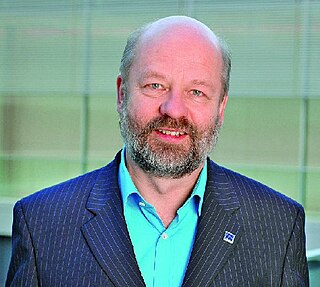
Hans-Josef Fell is a German former politician who was a member of the German Bundestag from 1998 to 2013. A member of Alliance 90/The Greens, he co-authored the 2000 draft of the Renewable Energy Sources Act alongside Hermann Scheer, establishing the foundation for the technology developments in photovoltaic, biogas, wind power and geothermal energy in Germany. Fell is founder and president of the Energy Watch Group and an internationally renowned energy and climate change advisor, author and speaker.

Solar power consists of photovoltaics (PV) and solar thermal energy in the European Union (EU).
Preben Maegaard, was a Danish renewable energy pioneer, author and expert. Since the oil crisis in 1974 he worked for the transition from fossil fuels to renewable energy. Preben Maegaard was co-founder of the Nordic Folkecenter for Renewable Energy, established in 1983, and its director 1984 till 2013 (www.folkecenter.net).
DESERTEC is a non-profit foundation that focuses on the production of renewable energy in desert regions. The project aims to create a global renewable energy plan based on the concept of harnessing sustainable powers, from sites where renewable sources of energy are more abundant, and transferring it through high-voltage direct current transmission to consumption centers. The foundation also works on concepts involving green hydrogen. Multiple types of renewable energy sources are envisioned, but their plan is centered around the natural climate of the deserts.
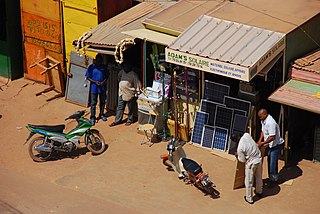
Renewable energy in developing countries is an increasingly used alternative to fossil fuel energy, as these countries scale up their energy supplies and address energy poverty. Renewable energy technology was once seen as unaffordable for developing countries. However, since 2015, investment in non-hydro renewable energy has been higher in developing countries than in developed countries, and comprised 54% of global renewable energy investment in 2019. The International Energy Agency forecasts that renewable energy will provide the majority of energy supply growth through 2030 in Africa and Central and South America, and 42% of supply growth in China.

The Lebanese Center for Energy Conservation (LCEC) is the national energy agency for Lebanon. It is a governmental organization within the Lebanese Ministry of Energy and Water (MEW). LCEC is the technical arm of the Ministry in all subjects related to energy efficiency, renewable energy, and green buildings. LCEC provides energy efficiency and renewable energy programs to the public and private sectors in Lebanon.

The Ontario Sustainable Energy Association (OSEA) is a non-profit organization supporting the growth of renewable energy and Community Power projects in the Canadian Province of Ontario. OSEA advocated an advanced renewable energy Feed-in Tariff program for Ontario, resulting in the creation of the Renewable Energy Standard Offer Program, a precursor to the Green Energy Act and, in 2007, the most progressive energy policy in North America in a decade. OSEA has approximately 130 community and industry members as well as individual members. The affairs of the association are managed by a board of directors elected by the membership.

Solar power in Colorado has grown rapidly, partly because of one of the most favorable net metering laws in the country, with no limit on the number of users. The state was the first in the nation to establish a Renewable Portfolio Standard for its electric utilities.
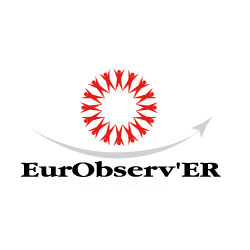
EurObserv'ER is a consortium dedicated to the monitoring of the development of the various sectors of renewable energies in the European Union.
















